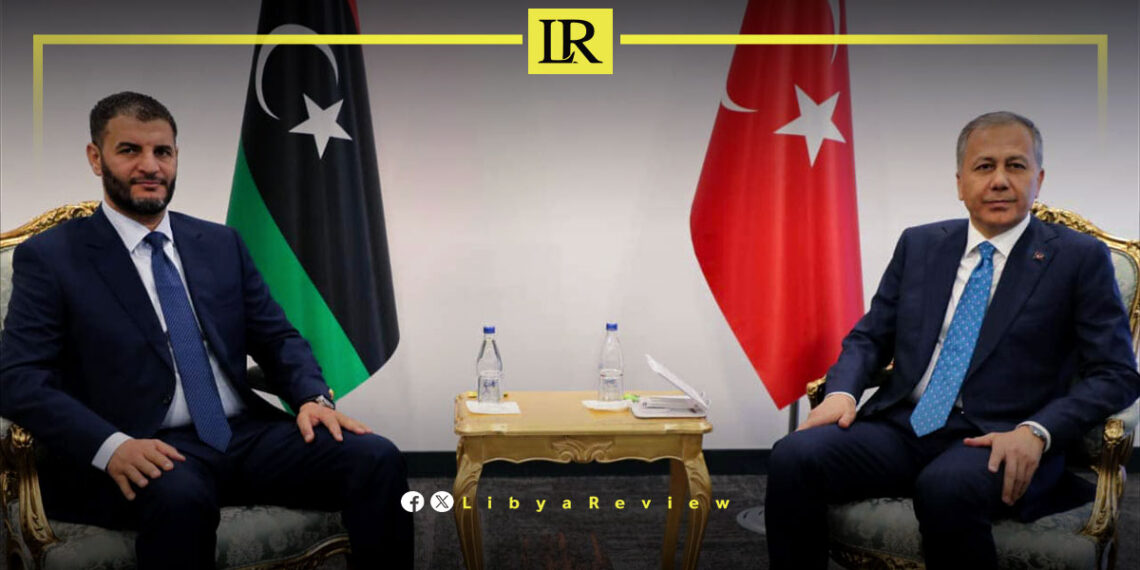On Wednesday, Libya and Turkey signed a Memorandum of Understanding (MoU) to enhance cooperation in law enforcement, security training, and intelligence exchange.
The agreement was formalized in Istanbul by Libyan Interior Minister-designate, Major General Emad El-Trabelsi, and Turkish Interior Minister Ali Yerlikaya, marking a step toward deeper collaboration between the two nations.
The MoU aims to boost bilateral security efforts by focusing on training programs and knowledge sharing to modernize Libya’s security capabilities. The partnership reflects Libya’s interest in strengthening its institutions as part of its post-conflict recovery, with Turkey offering expertise in combating terrorism, transnational crime, and organized crime networks.
Following the signing ceremony, officials from both countries discussed practical cooperation on humanitarian issues. They agreed to simplify visa procedures and residency requirements for Libyan patients and students receiving treatment or education in Turkey. Turkey expressed its readiness to implement these changes through a separate agreement, ensuring easier access for Libyans seeking medical care or education abroad.
The discussions also covered intelligence-sharing frameworks and strategies to address common security threats, with both sides emphasizing the importance of regional stability. The ministers reaffirmed their commitment to expanding cooperation to safeguard mutual interests, highlighting the importance of capacity-building initiatives and advanced security training.
The agreement was signed during the SAHA EXPO in Istanbul, one of the region’s premier defense and technology exhibitions. The expo provided a platform for both countries to discuss new security technologies and explore opportunities for future cooperation beyond the law enforcement sector.
This agreement strengthens the already significant relationship between Libya’s Government of National Unity (GNU) and Turkey, which has been pivotal in supporting Libya’s stabilization efforts. As both countries align their security and humanitarian cooperation priorities, the MoU sets the foundation for long-term collaboration across multiple sectors, including defense and infrastructure.


